WHAT IS REALLY BEST FOR THE COMMUNITY?
Infant mortality is indeed a sensitive subject and, for all things related, difficult to know how best to approach when discussing on a public platform. My dilemma, after having observed an unexpected sense of functionality in a people coping with losing what I’d consider to be an abnormally high number of infants, is that as a result of this I find myself now questioning exactly how to react.

In a study conducted in Mentawai in 1978 by Hólfer and Pech, it was found that between 15-24% of women lose a child under the age of five. Which, when compared to most developed countries, is an extremely high percentage. In a study we conducted within remote forest communities here in 2011, it was found that for these women the figures have not improved. Thirty-three years on and still around one in four women here will lose a child under the age of five.
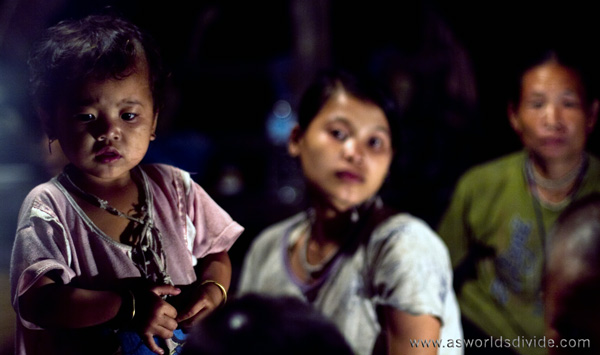
Naturally, upon learning of this situation, the mind quickly leaps to the theory that if we share our modern advancements in medicines, health services and facilities, we can help prevent these deaths and improve the lives of the people here. It’s a system that works. Look at us!
Well, what if this is not the best solution; what if the view we draw from the circumstance of our own society isn’t broad enough for us to see the entire picture; what if the answer here, even though the rate of infant mortality for children under five is excessively high, is nothing needs to change at all.
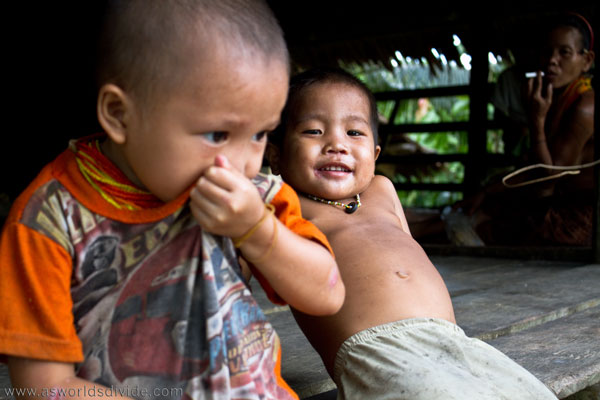
It is found that most developed countries are fortuned with such incredible health services and facilities that below 1% of children will die under the age of five. This is tribute to the wonderful medical research, advancements and services available.
What may not be taken into account though is that for mothers and families for whom this tragedy does occur the psychological impact today is often profound. It’s not uncommon for parents to suffer long-term implications such as depression and never fully recover; also impacting the lives of all those related.
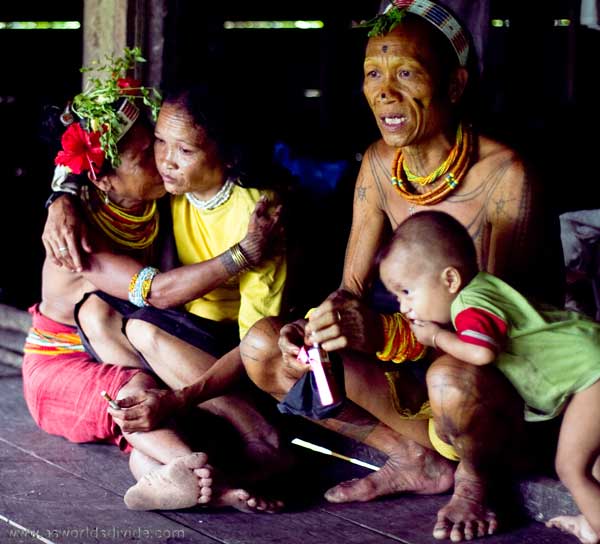
Interestingly, for indigenous Mentawai, a society with a rate of infant mortality for children under five more than twenty times higher, the impact is not relative. In fact signs of any long-term effects on mothers or their families are non-existent. There is a period of grieving, termed a ‘crying’ period, but after this is concluded – which is marked by a ceremony releasing the spirit from the family home (Uma) – they appear to move on with life in much the same way as prior to their loss.
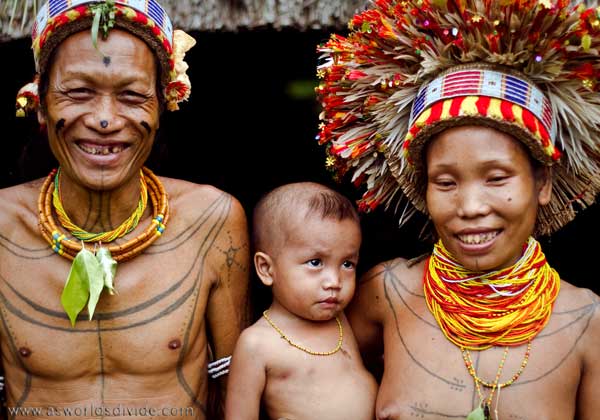
This is not suggesting the Mentawai value life any less than we or any other people do, absolutely not, and nor is there intention to criticise or question an approach that has proven successful in other parts of the world, or perhaps even in other – more developed – areas of Mentawai.
What this observation indicates though is that – with very little increase in health services and the availability of modern medical facilities within this remote region – their expectations have not been altered; they’ve maintained a realistic understanding for their circumstance and continue to deal with these deaths in the way they’ve long become accustomed.
A short video providing some insight into the Mentawai perspective:
Sure it is an extremely high rate of infant mortality when comparing to standards of a developed world, but for a community that compares only to itself it is in fact neither high nor low, it just is.
So I guess my concern, which I’m now realising as I explore these thoughts, is to what depth we actually consider the complexities of each individual community’s circumstance before proceeding to introduce such fundamental change to the systems and processes they’ve developed over a long period of time.
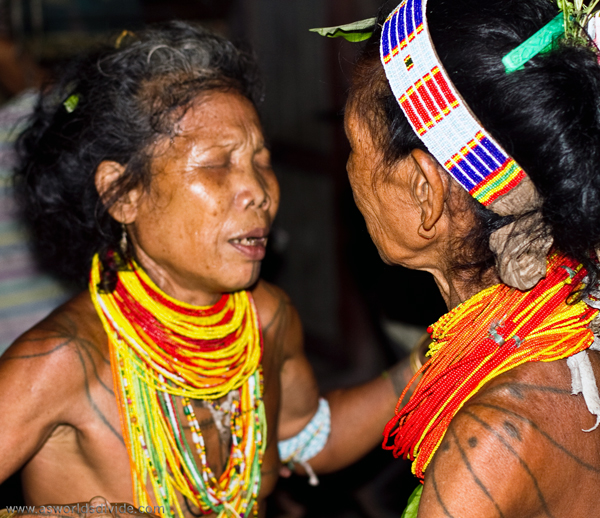
Are we considering the possibility that, if the circumstance of helping to improve the lives of indigenous peoples involves introducing foreign standards that alter a people’s psychological makeup and expectations away from that which they know and trust, we might actually be doing more harm than good?
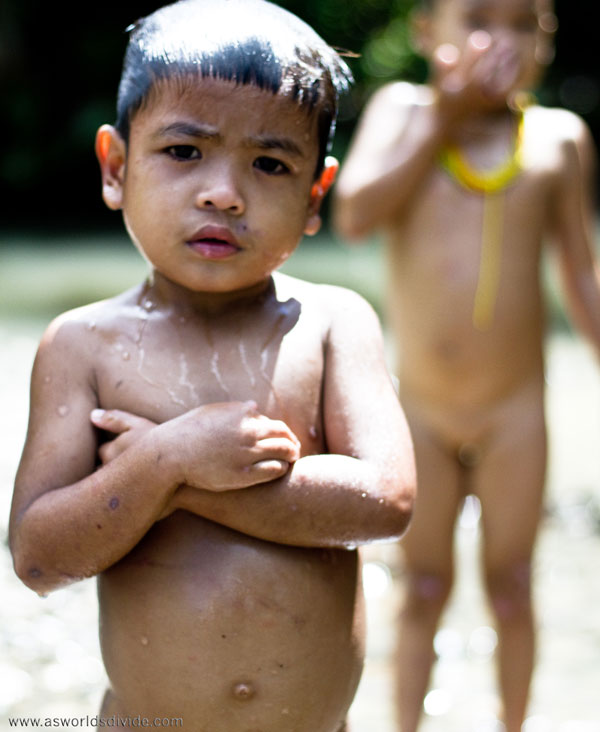
Please, if you have an opinion on the topic – whether for or against – I’d be most interested to hear your comments. My apologies if you’ve found this offensive in any way. I’m really just trying to make sense of it myself. Thanks.


lisa
they are the lucky ones – to still be living a pure existence. we can only learn from them, and leave them alone.. we might think we have a better, civilized way with medicines and health care, but at what cost. how many animals have died and suffer in the aid of man?? polution -etcetera, etcetera.. the big picture we “the civilized world” have to look at keeps me awake at night and sickens me.. if only we could go back..
dont be sorry for raising such an issue.. they are happy.
who are we to judge?
im sorry though for being a bit heavy, but i could go on and on.. i want to be in their big picture, but im not, im here.
Aug 15, 2013 @ 9:58 am
Rob
Thanks for your comments Lisa. I get the feeling you’re quite passionate about topics relating to the impacts of modern development, or perhaps some of the motives behind it?
Aug 21, 2013 @ 5:15 pm
Leo
Mate
what is best for these people is that the “civilised world” leave them alone. The “civilised” or “developed” world works for certain people that in a sense have won a lottery to have a job that puts food in their belly, a roof over their heads and a shirt on their back. The Mentawi have been going for centuries with out the help of the “moderns”.
to save mortality rate was the common excuse for what they did to the people of my country the australian aboriginal. It is only now after 200 yrs of “saving the babies” are we realising that we are worng to intervene and Australia is waking up from that fact…..very slowly. Eventually the Mentawi will change…..contact has been made and unless we can cange the attitude of the developed world…. unfortunatly the Mentawi will probably succumb to the fate that has wiped out many cultures, indiginious populations and native flora and fauna. But hey, thanks for what your are doing, I really enjoy your vids, pics and stories, it is a real insight for me as I believe they way these people live is the real way to live.
Leo
Sep 02, 2013 @ 8:59 pm
siberoutard
In Siberut, the death of children is a dramatic event for parents and the clan as a whole (2 out of 5 children die before the age of 5 years). After a period of mourning and many ceremonies, life takes over. Grief drains. We no longer called the dead children. Their minds could get irritating. He joined the world over the world here below. One where his ancestors.Other children will born to continue the lineage of the living and the dead.
Sep 03, 2013 @ 3:07 am
PASIH (Association of Siberut Green))
siberut maeruk!!!
Oct 25, 2013 @ 10:45 am
Walt
I am in some level of agreement with you. It sounds like a healthy way to be and is something that all cultures have had to face. I suppose when its expected that some children will be lost that it is not as devistating to the psyche when one IS lost.
I feel that minimally contracted tribes ought to stay that way to the greatest extent possible for the greatest duration possible to maintain their cultural lifestyle. Many a good intentioned foreigner has brought things they felt were needed to various indigenous communities with catastrophic consequences from the youth leaving only to find their way to extreme poverty of the third world (please excuse the term.)
In the case of medical treatment, I feel that less is more. If you can introduce them to vaccinations against new world diseases it really goes toward protecting the community from what contact with the outside will expose them to. Bringing in a field hospital as a semi permanent fixture is something they should never come to rely on. Allowing tradition and the natural cycle of life to persist trumps any temporary benefit it might bring.
Nov 24, 2013 @ 10:18 am
Rob
Wisely spoken Walt. Thanks for commenting.
Nov 26, 2013 @ 6:57 am